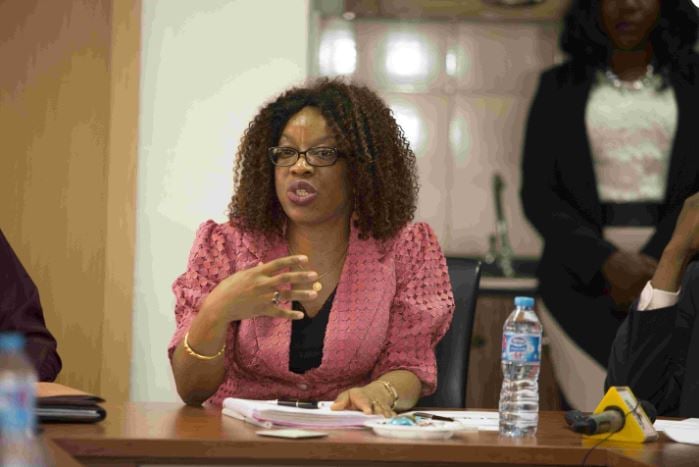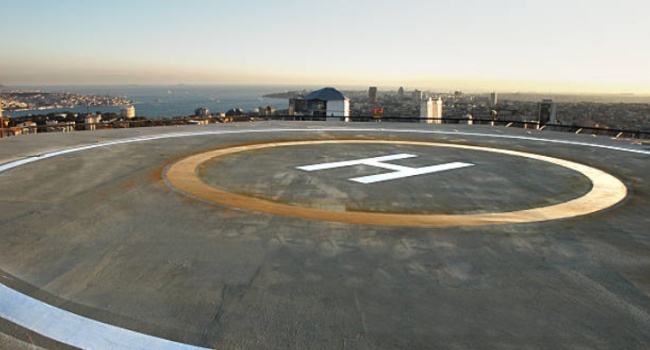PWD inclusion across states
Nigeria has a plethora of policies with critical and quite useful inputs from stakeholders. The real problem has been implementation.
This malady has affected the different constituent units of the Nigerian landscape including the disability community.
Available data provided by the National Commission for Persons with Disabilities (NCPWD) put the population of people with disabilities (PWDs) in Nigeria at 35.1 million, which translates to about 15 percent of the nation’s population of 234,875,010 according to Worldometer.
Inadequate implementation of disability-friendly policies has plagued the well-intentioned Discrimination against Persons with Disabilities (Prohibition) Act 2019.
Advertisement
The Act was expected to be domesticated in all the 36 states and the federal capital territory (FCT). But that has not been the case.
However, some states have done considerably well on the PWD front and have domesticated or implemented the law.
A handful of states have provided decent employment, vocational training (skills development) or financial support (social welfare) to PWDs, provided assistive devices, accessibility to public facilities (buildings, ramps and sidewalks) and services, accessible public transportation, awareness campaigns to promote disability rights, and inclusive education.
Advertisement
SOME PROVISIONS OF THE ACT
a. The Act prohibits any form of discrimination against any person on the grounds of disability and imposes penalty for violation.
b. PWDs should be afforded lifts, ramps and other accessibility aids to enable access to all physical structures on an equal basis. Similar access must be provided in public buildings and sidewalks.
c. All seaports, railways and airports are required to make adequate provision to facilitate ease of access by PWDs, including the provision of functional wheelchairs, ensuring that they are accorded priority in queues and during boarding and disembarkment, and effecting the translation of information in an appropriate format for PWDs.
Advertisement
d. PWDs have the right to free, inclusive and appropriate education and liberty. This provision also states that they should be provided with assistive education devices such as braille and support such as sign language and financial support for special education.
e. Free treatment for all persons with mental impairments.
f. A PWD shall work on an equal basis with every other individual and has the right to an opportunity to earn a living through work that is freely chosen or accepted in the labor market and an open work environment.
g. The Act states that all public organisations are to reserve at least 5 percent of employment opportunities for PWDs.
Advertisement
According to a report released in August 2024 by Agora Policy, a Nigerian think tank and non-profit organisation, “the Disability Act has only been adopted in 19 of the 36 states in Nigeria and, therefore has the force of law in only those 19 states”.
“The states that have domesticated the Act are Lagos, Kogi, Kwara, Nasarawa, Niger, Plateau, Bauchi, Jigawa, Kaduna, Kano, Sokoto, Zamfara, Abia, Anambra, Cross River, Edo, Ekiti, Ondo, Oyo and Enugu,” the report reads.
Advertisement
“The other states that are yet to adopt the Act or put in place laws to address disability issues are Akwa Ibom, Adamawa, Bayelsa, Benue, Delta, Borno, Ebonyi, Imo, Ogun, Osun, Katsina, Kebbi, Gombe, Rivers, Taraba and Yobe.”
Some of the states that have performed appreciably include Lagos, Oyo and Kwara.
Advertisement
LAGOS
The Lagos government, through the Lagos State Office for Disability Affairs (LASODA) established in 2011 by ex-governor Babatunde Fashola has provided financial support and organised trade exhibitions for PWDs.
Advertisement
The state also organised awareness campaigns against Sexual and Gender Violence against PWDs in partnership with Lagos State Domestic and Sexual Violence Agency, vocational trainings, talent hunt, donated protective materials to people with albinism, celebrated children with disabilities, collaborated with the Nigerian Security and Civil Defence Corps (NSCDC) to protect PWDS and provided a N500 million disability trust fund.
OYO
The Oyo State Agency for Persons with Disabilities (OYSAPD) established in 2022 by Governor Seyi Makinde has provided jobs for many PWDs.
In early 2024, Makinde announced SAFER initiative, a complementary transport initiative for PWDs with identity cards, to access the Pace Setter Service buses.
Oyo government also increased the 2025 capital budgetary allocation for PWDs by over 70 percent of what was received in 2024. The allocation was N492,000,000 and increased to N877,500,000.
“Disability Cluster Group’s grants and subvention have been approved, and in no distant time, three operational vehicles will be delivered for the smooth running of the agency for persons with disabilities,” Makinde said.
As a footnote, it has been difficult to know how much states have done for PWDs because they do not have websites and other online platforms to mine data from.
LASODA, for instance, does not have a website. Information on its instagram and facebook pages are stale. Information on OYSAPD’s website are sparse and outdated.
PWD ACT AN IMPERATIVE FOR STATES
The lack of domestication of disability laws in some Nigerian states has severe consequences for PWDs.
Without these laws, PWDs are denied fundamental rights and protections, perpetuating discrimination and exclusion in various aspects of life, including education, employment, and access to healthcare.
This lack of a legal framework also hinders the development of inclusive policies and infrastructure, leaving PWDs marginalised and vulnerable to abuse.
Effective implementation of disability laws in Nigeria requires a multi-sectoral approach involving governments, disability commissions, PWD associations, PWDs, concerned persons and civil society organisations.
Add a comment










